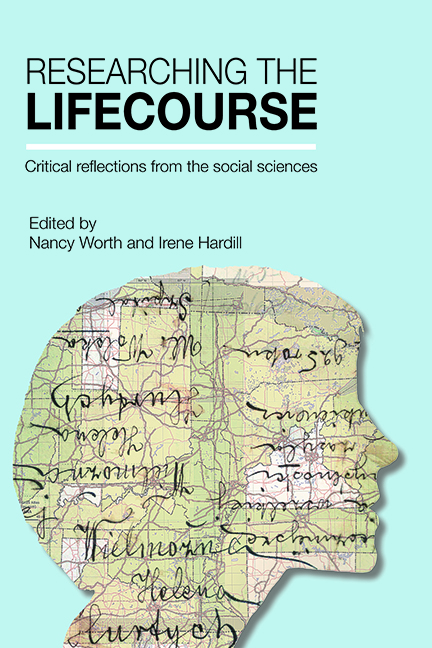two - Time and the lifecourse: perspectives from qualitative longitudinal research
Published online by Cambridge University Press: 08 March 2022
Summary
Introduction
For groups, as well as for individuals, life itself means to separate and to be re-united, to change form and condition, to die and to be reborn. It is to act and to cease, to wait and rest, and then to begin acting again but in a different way. And there are always new thresholds to cross… (van Gennep, 1960 [1909], p 189)
This quotation from an early ‘armchair’ anthropologist reflects much of what is compelling about the study of the lifecourse – conceptualised here as the flow of lives through time. Writing in the first decade of the 20th century, van Gennep was one of the first scholars to use the organising principle of the lifecourse to make sense of social practices and processes. He sought to understand how the biological processes of ageing – from birth to death – intersect with the biographical unfolding of lives – from cradle to grave. The study of individual biographies, or life journeys, is a central component of lifecourse research (Chamberlayne et al, 2000). The focus may be on the dynamics of specific ‘phases’ of the lifecourse (for example, youth, older life); transitions between these phases, or from one status or circumstance to another (for example, into and out of schooling, parenthood, employment, poverty, ill health or crime); or the mechanisms which trigger turning points or transitions. Longer term trajectories are no less important: for example, the age trajectory through childhood and adulthood into later life; the family trajectory through partnering and parenting into grandparenting; or the work trajectory through education and un/employment into retirement. The intertwining of these varied trajectories and how they influence each other is a key site for investigation. It is through the long sweep of a life over decades that macro-historical processes come more clearly into focus, and the cumulative influence of earlier life patterns on later life chances and experiences can be more fully investigated and understood.
While individual biography is integral to lifecourse research, so too is a concern with how lives unfold collectively (interactively, relationally), and how individual and collective lives shape and, in turn, are shaped by wider historical, structural, spatial and geo-political processes. How lifecourse research is approached depends on how these domains of experience are understood, and the relative priority accorded to them.
- Type
- Chapter
- Information
- Researching the LifecourseCritical Reflections from the Social Sciences, pp. 25 - 42Publisher: Bristol University PressPrint publication year: 2015
- 2
- Cited by



